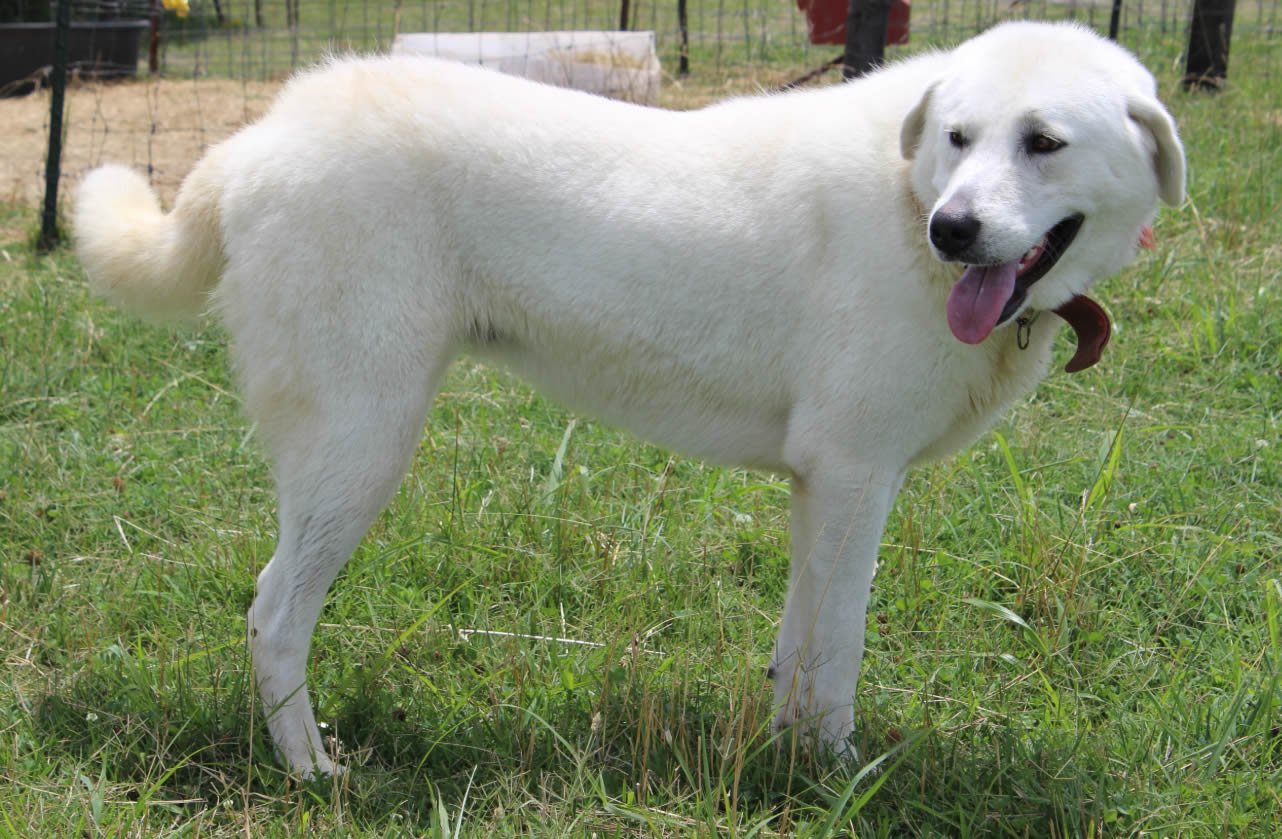- Breed Category: Livestock guardian dog
- Country of Origin: Turkey
- Average Height: Males 71-86 cm, Females 69-81 cm
- Average Weight: Males 45-64 kg, Females 40-55 kg
- Average Life Span: 10-12 years
- Grooming Requirements: Moderate, regular brushing needed
- Exercise Requirements: High, needs daily exercise
- Coat Type: Double coat, thick and coarse
- Coat Color Variations: White, sometimes with biscuit markings
- Shedding Level: Moderate to high
- Ear Type: V-shaped, pendant
- Tail Type: Long, carried high and curled
- Temperament: Loyal, protective, independent
- Intelligence Level: High, intelligent and alert
- Barking Tendency: Moderate, barks when necessary
- Compatibility with Children: Good, with supervision
- Compatibility with Other Pets: Varies, early socialisation needed
- Training Ease: Moderate, requires experienced handler
- Common Health Issues: Hip dysplasia, hypothyroidism
- Dietary Needs: High-quality diet, balanced nutrition
- Energy Level: Moderate to high
- Drooling Tendency: Low
- Sensitivity to Weather: Tolerant to cold, sensitive to heat
- Overall Maintenance Level: Moderate
- Original Purpose: Livestock guarding
- Year of Recognition by Kennel Clubs: 1998 by UKC
- Apartment Friendly: Not ideal, needs space
- Best Suited For: Rural or farm environments
- Cost of Ownership: Moderate to high
- Unique Traits: Strong protective instincts
The Akbash dog, a breed known for its striking white coat and protective instincts, has a rich history that dates back thousands of years. Originating from Turkey, these dogs were bred to guard livestock, a role they still excel in today. Their name, “Akbash,” translates to “white head” in Turkish, highlighting their distinctive appearance.
“The Akbash is not just a guardian; it’s a partner in protection,” says Dr. Jane Smith, a renowned canine behaviourist.
This article aims to delve into the unique characteristics, historical background, and care requirements of the Akbash dog. Whether you’re considering adding one to your family or simply curious, understanding this breed’s needs and traits is essential.
Early Development and Role in Livestock Protection
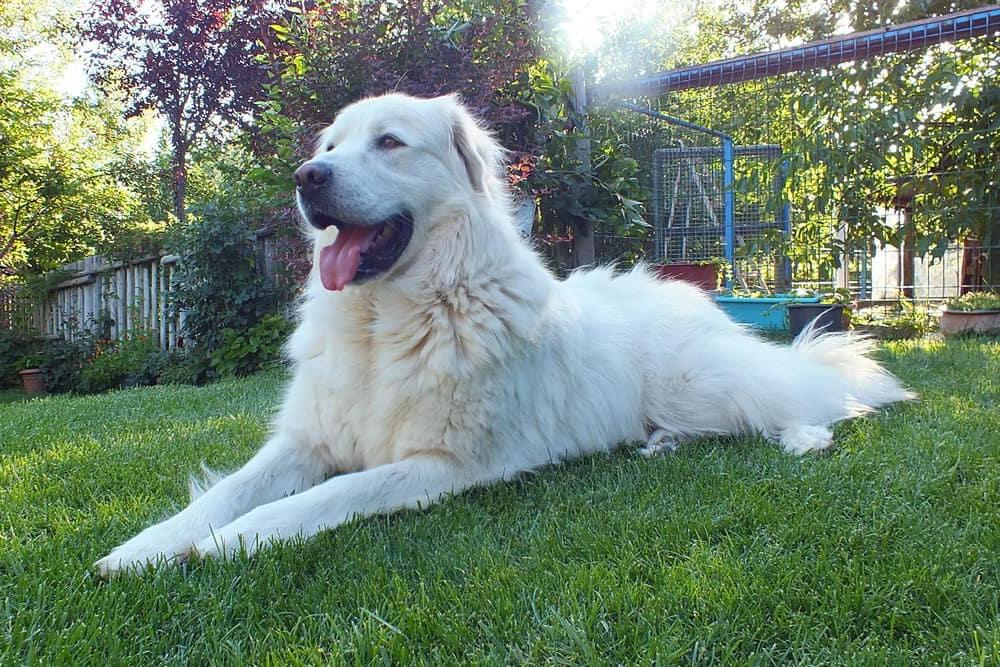
The Akbash dog has a fascinating origin story, deeply rooted in the rugged landscapes of Turkey. This breed was developed centuries ago, specifically to protect livestock from predators. Their role in Turkish livestock protection is legendary, with these dogs often working in pairs or small groups to guard sheep and goats. Their keen instincts and loyalty make them exceptional guardians, a trait that has been honed over generations.
Key Historical Figures and Regions
The Akbash’s development is closely tied to the rural regions of western Turkey, particularly around the provinces of Afyon and Eskisehir. Local shepherds and farmers played a crucial role in shaping the breed, selecting dogs that exhibited the best protective traits. These early breeders were instrumental in creating a dog that could withstand harsh climates and challenging terrains, ensuring the safety of their flocks.
Physical Characteristics
Physically, the Akbash is a sight to behold. They are large, muscular dogs with a striking white coat that helps them blend in with their flock. Their heads are broad and strong, with a noble expression that commands respect. Despite their size, they move with grace and agility, a testament to their working heritage. Their double coat provides protection against the elements, making them well-suited for outdoor life.
Appearance and Unique Traits
The Akbash dog stands out with its impressive size and striking white coat, which serves as a natural camouflage among sheep. This large breed typically weighs between 40 to 60 kilograms, with males often being larger than females. Their coat is dense and weather-resistant, perfect for outdoor life. A distinctive feature is their broad head, which gives them a noble and commanding presence.
Beyond their appearance, Akbash dogs are known for their strong and agile build. They possess a muscular frame that allows them to move swiftly and gracefully, essential traits for a working dog. Their agility is complemented by a keen sense of balance, making them adept at navigating rugged terrains.
Temperament and Behaviour
When it comes to temperament, Akbash dogs are known for their calm and independent nature. They are incredibly loyal and protective, often forming strong bonds with their family. While they are gentle with those they trust, they can be wary of strangers, a trait that makes them excellent guardians. Their intelligence and instinctive behaviour mean they require consistent training and socialisation from an early age to ensure they are well-adjusted companions.
Personality Traits and Family Suitability

Akbash dogs are renowned for their loyalty and independence. These traits make them exceptional guardians, always ready to protect their family and livestock. Their protective nature is deeply ingrained, making them vigilant and reliable companions. While they are fiercely loyal, they also value their independence, often making decisions on their own when guarding livestock.
Family Pet and Livestock Guardian
As family pets, Akbash dogs are well-suited for those who appreciate a dog with a strong protective instinct. They thrive in environments where they have a job to do, such as guarding livestock or property. Their calm demeanour and loyalty make them excellent family members, especially for those with large properties or farms.
Interaction with Children and Other Animals
Akbash dogs are generally good with children, displaying patience and gentleness. However, due to their size and strength, supervision is recommended during interactions with young kids. They can coexist with other animals, especially if raised together, but their protective instincts may lead to territorial behaviour.
Training and Exercise Needs
Training an Akbash requires consistency and patience. Their intelligence and independence mean they respond best to positive reinforcement. Regular exercise is essential to keep them healthy and happy, with daily walks and ample space to roam being ideal. Engaging them in activities that stimulate their mind and body will ensure they remain well-balanced companions.
Training, Socialisation, and Health
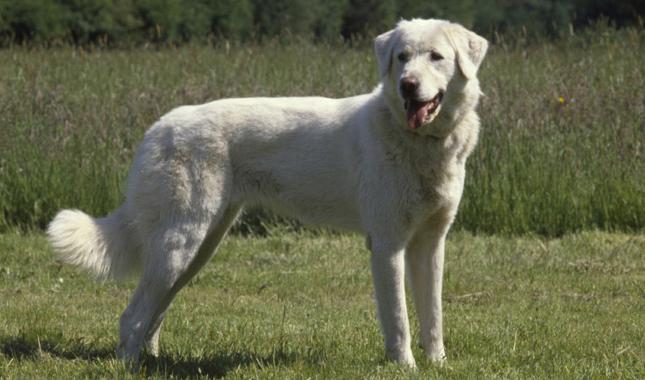
Importance of Early Training and Socialisation
Starting early with training and socialisation is crucial for Akbash dogs. These intelligent and independent dogs need guidance to channel their natural instincts positively. Early exposure to different environments, people, and animals helps them become well-rounded adults. This foundation is key to ensuring they grow into confident and balanced companions.
Recommended Training Techniques
When it comes to training, positive reinforcement is the way to go. Akbash dogs respond well to rewards and praise, making this approach effective. Consistency is important, as their independent nature can sometimes lead to stubbornness. Short, engaging training sessions work best, keeping their attention and making learning enjoyable.
Daily Exercise Requirements and Activities They Enjoy
Akbash dogs are active and need regular exercise to stay healthy. Daily walks are a must, along with plenty of space to roam. They enjoy activities that challenge both their mind and body, like agility courses or interactive games. Keeping them engaged helps prevent boredom and ensures they remain happy and content.
Health and Lifespan
Generally healthy, Akbash dogs have a lifespan of around 10 to 12 years. Regular vet check-ups and a balanced diet are essential to maintain their well-being. Like all breeds, they can be prone to certain health issues, so staying informed and proactive about their health is important for a long, happy life.
Health and Care for the Akbash Dog
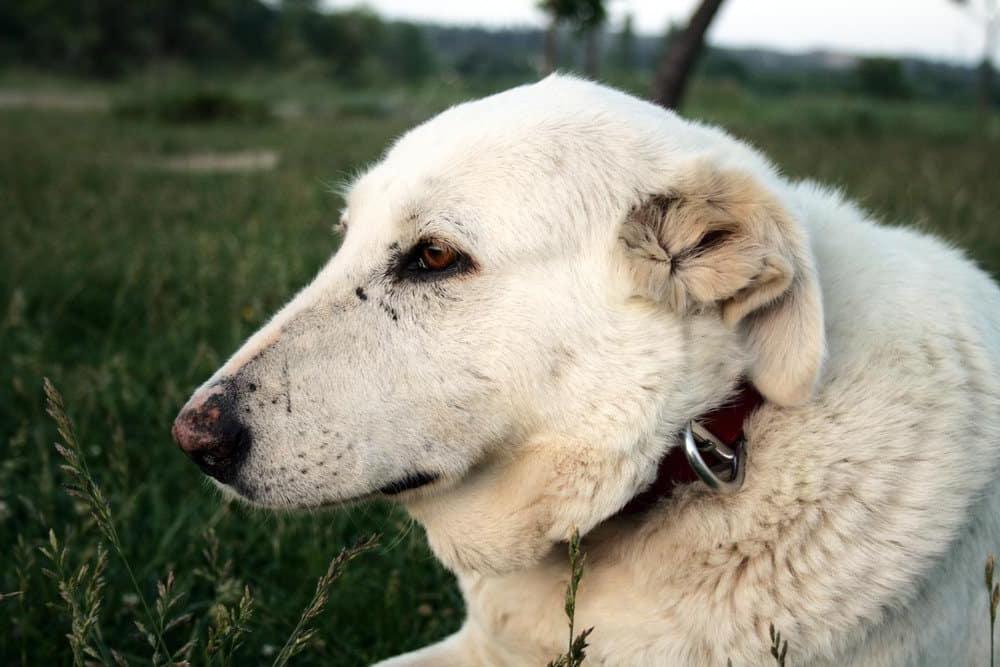
Common Health Issues
Akbash dogs are generally robust, but like any breed, they can face certain health challenges. Hip dysplasia and bloat are two conditions to watch out for. Regular vet visits can help catch these issues early, ensuring your dog stays in top shape.
Average Lifespan and Health Tips
With proper care, Akbash dogs typically live between 10 to 12 years. To keep them healthy, provide a balanced diet and ensure they get plenty of exercise. Regular check-ups with the vet are crucial to monitor their health and catch any potential issues early.
Preventative Care Recommendations
Preventative care is key to a long, healthy life for your Akbash. Regular vaccinations, flea and tick prevention, and dental care are essential. Keeping an eye on their weight and providing a nutritious diet will also help prevent common health problems.
Grooming and Maintenance
The Akbash’s dense coat requires regular grooming to keep it in good condition. Brushing a few times a week helps reduce shedding and keeps their coat healthy. Bathing should be occasional, as over-washing can strip their coat of natural oils. Regular nail trimming and ear checks are also important parts of their grooming routine.
Coat Care and Grooming Routines
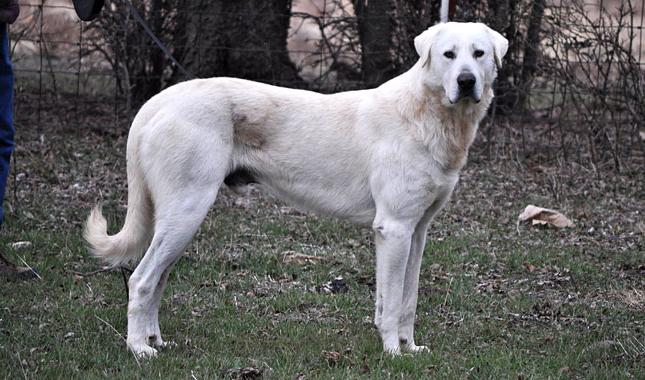
Shedding and Seasonal Grooming Tips
The Akbash dog boasts a beautiful, dense coat that requires regular attention. Brushing a few times a week is essential to manage shedding, especially during seasonal changes when they shed more heavily. A slicker brush or an undercoat rake can be particularly effective in removing loose fur and preventing matting. During shedding seasons, daily brushing might be necessary to keep your home fur-free and your dog comfortable.
Bathing should be kept to a minimum, as over-washing can strip the coat of its natural oils. A bath every few months or when they get particularly dirty is usually sufficient. Always use a dog-specific shampoo to maintain the health of their skin and coat.
Diet and Nutrition
A balanced diet is crucial for the Akbash’s overall health and well-being. High-quality dog food that meets their nutritional needs is a must. Look for options rich in protein and healthy fats to support their active lifestyle and maintain their muscular build. Fresh water should always be available, and portion control is important to prevent obesity, which can exacerbate health issues like hip dysplasia.
Consulting with a vet can help tailor a diet plan specific to your Akbash’s age, weight, and activity level, ensuring they get all the nutrients they need for a long, healthy life.
Nutritional Needs for Optimal Health
Foods to Include and Avoid
Feeding your Akbash a balanced diet is key to their health. Opt for high-quality dog food rich in protein and healthy fats. These nutrients support their active lifestyle and muscular build. Include foods with omega-3 fatty acids for a shiny coat and joint health. Avoid foods with artificial additives, fillers, and excessive grains, as these can lead to allergies and digestive issues.
Feeding Schedules and Portion Recommendations
Establishing a consistent feeding schedule helps maintain your Akbash’s energy levels and prevents overeating. Typically, two meals a day are sufficient for adult dogs. Puppies may require more frequent meals. Portion sizes depend on their age, weight, and activity level, so consulting with a vet for tailored advice is wise. Always ensure fresh water is available.
Fun Facts and Trivia
Did you know the Akbash’s white coat isn’t just for looks? It helps them blend in with sheep, making them less noticeable to predators. This breed is also known for its keen intelligence and problem-solving skills, often making decisions independently when guarding livestock. Their name, “Akbash,” literally means “white head” in Turkish, highlighting their distinctive appearance.
Interesting Tidbits about the Akbash Dog

The Akbash dog is a breed with a rich tapestry of history and unique traits. One fascinating aspect is their ability to blend seamlessly with the flock they protect, thanks to their striking white coat. This natural camouflage is not just for aesthetics; it plays a crucial role in their effectiveness as livestock guardians.
Another interesting tidbit is their remarkable intelligence and problem-solving skills. Akbash dogs are known for making independent decisions, especially when it comes to protecting their charges. This trait has been honed over centuries, making them reliable and trustworthy companions for shepherds.
Famous Akbash Dogs in Media or History
While the Akbash may not be as widely recognised in media as some other breeds, they have made their mark in history. These dogs have been celebrated in Turkish folklore and are often depicted as loyal protectors in stories passed down through generations. Their reputation as steadfast guardians has earned them a place of honour in the regions where they originated.
In recent years, the Akbash has gained attention in documentaries and articles highlighting their role in sustainable farming practices. Their ability to protect livestock without the need for lethal measures against predators makes them invaluable in conservation efforts.
Final Thoughts

The Akbash dog embodies loyalty and protection. This breed’s rich history and unique traits make it a remarkable guardian. Balancing independence with devotion, the Akbash excels in both family and livestock roles, offering a blend of intelligence and strength. Embracing their needs and characteristics ensures a rewarding partnership. Consider the Akbash for a loyal companion and steadfast protector.
Akbash can be stubborn and independent, so they require consistent and patient training.
Akbash can be good with other pets if socialized properly from a young age.
Akbash are generally healthy but can be prone to hip dysplasia and bloat.
Yes, Akbash shed moderately throughout the year and heavily during shedding season.
Akbash need at least 1-2 hours of exercise daily.
Akbash should be groomed at least once a week to keep their coat healthy and clean.
An Akbash can grow up to 81 cm in height.
Yes, Akbash can make great family pets if socialized properly.
The average weight of an Akbash is between 41-64 kg.
The average lifespan of an Akbash is between 10-12 years.

Lead Editor at JustusDogs, Ayesha is the proud mamma to a Cavalier Charles Spaniel named Sweetipie
